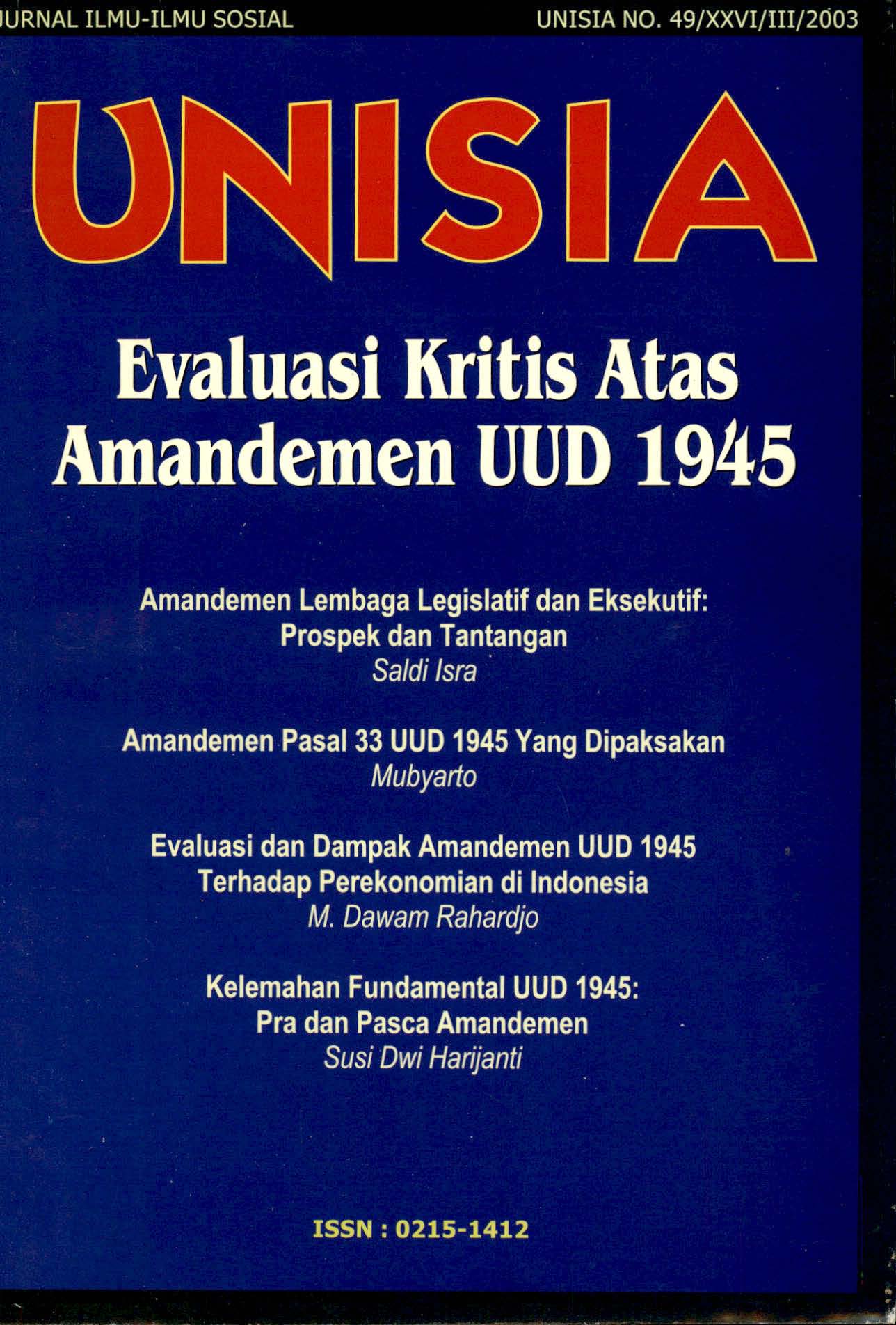Main Article Content
Abstract
The downfall of the New Order government in 1998 marked the 'democratic rebirth', which was conducted through a series of constitutional amendments, starting from 1999 until 2002. The radical changes, indeed, is being made. However, constitutional amendments contain many shortcomings as whole amendments took place in the 'state in transition'. One consequences of this is that amendments seem to be more spontaneously adapting to realities. This in turn creates lack of conceptual basis, illcohesiveness and poor drafting. All these fundamental defects undoubtedly will affect democratisation process. This Article aims to examine the fundamental problems of the 1945 Constitution in the period of pre and after the amendments.
Article Details
License
- Authors retain copyright and grant the journal right of first publication with the work simultaneously licensed under a Creative Commons Attribution License that allows others to share the work with an acknowledgement of the work's authorship and initial publication in this journal.
- Authors are able to enter into separate, additional contractual arrangements for the non-exclusive distribution of the journal's published version of the work (e.g., post it to an institutional repository or publish it in a book), with an acknowledgement of its initial publication in this journal.
- Authors are permitted and encouraged to post their work online (e.g., in institutional repositories or on their website) prior to and during the submission process, as it can lead to productive exchanges, as well as earlier and greater citation of published work.
How to Cite
Harijanti, S. D. (2016). Kelemahan Fundamental UUD 1945: Pra dan Pasca Amandemen. Unisia, (49). https://doi.org/10.20885/unisia.vol26.iss49.art4





